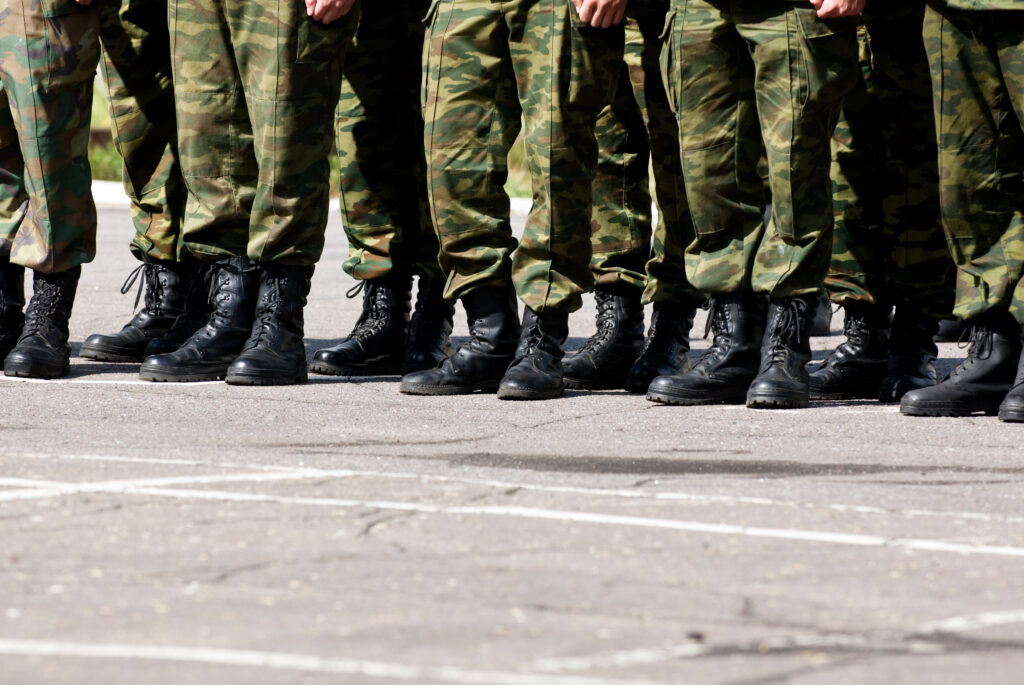How Do Forensic Psychologists Assist In Military Court Cases?
Forensic psychologists play a pivotal role in assessing accountability and criminal responsibility within both military and civilian courts. Their deep understanding of cognitive processes, coping mechanisms, and trauma responses makes them indispensable, especially in cases related to military discipline and administrative law. This discussion emphasizes the importance of forensic psychologists in military justice systems while exploring the challenges and opportunities tied to their recruitment and retention.
The American Psychological Association (APA) defines forensic psychology as “the application of clinical specialties to the legal arena” (Ward, 2013). Forensic psychologists leverage psychological theories, research, and clinical expertise to address legal matters throughout their careers. They work with individuals who may be dealing with depression or anxiety due to trauma, have suffered brain injuries from domestic violence, engaged in criminal acts such as theft to meet basic needs, or even committed violent offenses driven by rage or intent. They also assess youth involved in unlawful activities (Pinto, 2018).
By offering valuable psychological insights into behaviors and decision-making processes, forensic psychologists serve as essential contributors to resolving legal disputes. Their contributions are particularly significant in military courts, where understanding the psychological state and coping mechanisms of service members involved in legal proceedings can be critical. This article delves into the critical role of forensic psychologists within the military justice system and suggests ways to strengthen their integration into the armed forces.

The Critical Role of Forensic Psychologists in Military Justice
Delving into the intersection of psychology and law within military courts-martial reveals a dynamic and evolving framework in the military justice system. Unlike the decreasing prominence of criminal jury trials in civilian courts, military tribunals remain vibrant platforms for complex legal proceedings. Forensic psychologists are increasingly pivotal in these cases, particularly those involving sexual assault and intimate partner violence. Their contributions range from advising on trial strategies and jury selection to educating military panels on critical psychological concepts such as memory science, suggestibility, and coercive control. Additionally, they conduct forensic assessments to evaluate competency to stand trial and predict the likelihood of reoffending (Stein & Younggren, 2019). These evolving responsibilities underscore the growing importance of psychologists within military legal processes (Stein & Younggren, 2019).Forensic psychologists also play an indispensable role in assessing psychological factors that influence accountability and criminal culpability in military courts. They analyze critical elements such as coping mechanisms, developmental backgrounds, and trauma responses to provide essential insights that shape legal decisions. Beyond these assessments, their documentation of how individuals psychologically manage physical injuries or traumatic events has a significant impact on military proceedings, including disciplinary cases and administrative law disputes (Nolan, 2020). As a result, the integration of forensic psychologists into the military justice system ensures that legal judgments are both thorough and well-informed, reinforcing their essential function in achieving justice.

Navigating Challenges and Unlocking Opportunities in Military Forensic Psychology
Civilian psychologists often hesitate to engage with military systems, primarily due to unfamiliarity with their unique structures. Compounding this is a common misconception that military legal systems share significant similarities with civilian ones, leading to confusion and missteps. While integrating psychologists into trial teams is becoming a more accepted practice, many attorneys lack the necessary skills to fully leverage their expertise (Stein & Younggren, 2019).
The recruitment and retention of forensic psychologists within the military system present pressing challenges. Although this may not immediately appear to be a human rights issue, it intersects with critical labor rights concerns, such as inadequate compensation, restricted career growth, and excessive workloads. These factors not only impede professional development but also violate fundamental rights to fair and equitable working conditions. Such conditions undermine the dignity and respect these professionals deserve, falling short of broader human rights standards emphasizing fair labor practices and workplace well-being.
Yet, within these challenges lie opportunities for meaningful change. Initiatives like student loan repayment programs, competitive signing bonuses, and improved benefits packages hold promise for addressing these systemic issues. By implementing these strategies, military systems can create an environment that attracts and retains skilled forensic psychologists, fostering professional satisfaction and aligning with the principles of equitable labor practices.

Tackling Sexual Assault in the Armed Forces
A deeper understanding of victim behavior and offender traits within the military context is essential for identifying recurring patterns, especially as service members transition out of active duty.
Military courts are increasingly addressing cases involving sexual assault and intimate partner violence, underscoring the critical role of forensic psychologists in these legal proceedings. Experts like Stein and Younggren (2019) emphasize the value of forensic psychologists in educating military panels on scientific principles and conducting specialized assessments. By fostering interdisciplinary collaboration between forensic psychologists and military personnel, the effectiveness of comprehensive military strategies can be significantly enhanced.
The Defense Department reported in 2021 that over 8% of female service members experienced unwanted sexual contact, the highest rate recorded since data collection began in 2004 (Myers, 2022). Similarly, 1.5% of male service members reported incidents, the second-highest rate to date (Myers, 2022). Despite these troubling figures, only 7,260 sexual assault reports were filed out of an estimated 35,900 incidents that year, reflecting a reporting rate of just 20% (Myers, 2022). While fewer perpetrators are facing court-martial, there is an increase in administrative punishments and involuntary separations, potentially indicating growing survivor confidence in alternative disciplinary options (Myers, 2022). These findings call for bold and immediate measures to address sexual assault within the armed forces, focusing on reforming reporting systems, enhancing support structures, and ensuring accountability and justice for survivors. Leadership must prioritize building a culture of trust, respect, and transparency to create a safe space for reporting and addressing incidents.
Beth Foster, the Department of Defense’s director of force resiliency, stated, “This is really tough, and we’re going to talk through that…But we’ve got the way forward. We just need to double down on our efforts to get after this” (Myers, 2022). After over a decade of traditional “don’t rape” lectures, the military is now shifting toward proactive prevention strategies. Suggestions for improvement include more detailed evaluations of commanders and leaders (Myers, 2022). Additionally, making courts-martial outcomes for sexual assault and harassment cases public reinforces transparency, sending a clear message to both offenders and victims that accountability within the chain of command is a priority (Myers, 2022).
Conclusion
Forensic psychologists are indispensable to military justice, transcending the courtroom to address systemic challenges and create a safer environment within the armed forces. Their expertise not only enhances legal outcomes but also promotes accountability and fosters a culture of respect and fairness. Collaborative efforts are essential to driving meaningful change, ensuring that all service members’ well-being and rights are safeguarded.
At FC PsychExperts, we specialize in providing forensic evaluations tailored to the needs of defense attorneys and prosecutors in various areas of criminal law. Whether you’re addressing matters in military justice or other legal contexts, our experts are dedicated to delivering thorough, reliable assessments that contribute to fair and just outcomes. Together, we can navigate the complexities of the legal system with integrity and precision.
FAQs
What is the role of a forensic psychologist in military justice?
Forensic psychologists assess psychological factors influencing behavior, provide expert testimony, and offer insights that support fair legal proceedings in cases such as sexual assault and intimate partner violence.
Why is evaluating commanders and leaders in court-martial cases important?
Thorough evaluations ensure accountability and transparency, fostering a culture of justice and respect within the military while addressing potential leadership gaps.
How do forensic psychologists contribute to prevention in the military?
By analyzing patterns of behavior and systemic issues, forensic psychologists help develop strategies to prevent misconduct and create safer environments for service members.
What expertise does FC PsychExperts provide for legal cases?
FC PsychExperts offers comprehensive forensic evaluations for defense attorneys and prosecutors, specializing in areas such as criminal law and military justice to ensure fair outcomes.
How does forensic psychology benefit service members’ well-being?
By addressing psychological challenges and promoting accountability, forensic psychology helps safeguard the mental health and rights of all personnel in the armed forces.

